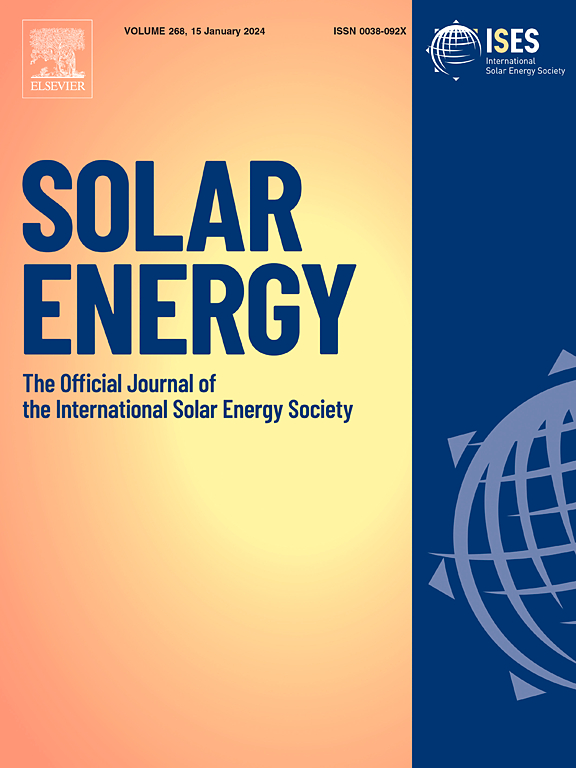热图像驱动的CNN预测热点地区太阳能光伏组件寿命
IF 6
2区 工程技术
Q2 ENERGY & FUELS
引用次数: 0
摘要
摘要光伏组件的可靠性研究尚不发达。研究了影响系统性能的环境因素。它们取决于环境条件、技术、设计和使用的材料。因此,有必要对这些因素进行详细的研究,然后才能量化模块的退化。目前的挑战来自热致退化,热点的形成加速了老化过程,缩短了模块的使用寿命,直接影响了系统的经济性和可靠性。现有的检测方法缺乏定量寿命评估的预测能力,限制了有效的维修计划和投资决策。本研究提出了一种改进的卷积神经网络(Mod-CNN),该网络使用热图像来预测基于降解技术的太阳能光伏的寿命。该模型将热热点图像与相应的平均温度数据相结合,训练出一种专门的CNN架构,该架构具有增强的热模式识别注意机制。这种新颖的方法通过Peck模型将基于物理的退化建模与先进的机器学习技术相结合,在R2(0.97)下实现了卓越的性能,大大超过了传统的方法。跨多个数据集的综合验证证实了该模型在准确预测太阳能组件使用寿命方面的有效性。在本研究工作中,热图像的平均热点温度及其对应的退化数据作为在MATLAB中实现的深度学习模型的训练基础。结果表明,该模型在预测太阳能组件寿命方面是有效的。从太阳能光伏安装领域的实际角度来看,这项研究工作对规划人员、安装人员、消费者和金融家来说尤为重要。本文章由计算机程序翻译,如有差异,请以英文原文为准。
Thermal image-driven CNN for predicting solar photovoltaic module lifespan from hotspots
Abstract
Reliability research on photovoltaic (PV) modules is still underdeveloped. Environmental factors involved in decreasing system performance are studied. They depend on environmental conditions, technology, design and materials used. It is essential therefore, a detailed study on these factors to then be able to quantify module degradation. Current challenges stem from thermal-induced degradation, where hotspot formation accelerates aging processes and reduces module lifespan, directly impacting system economics and reliability. Existing inspection methods lack predictive capabilities for quantitative lifetime assessment, limiting effective maintenance planning and investment decision making. This research proposes a modified convolutional neural network (Mod-CNN) that uses thermal images to predict the lifespan of solar PV based on degradation techniques. The proposed model integrates thermal hotspot images with the corresponding average temperature data to train a specialized CNN architecture that features enhanced attention mechanisms for thermal pattern recognition. This novel approach combines physics-based degradation modeling via the Peck model with advanced machine learning techniques, achieving exceptional performance with R2 (0.97), significantly surpassing conventional methodologies. Comprehensive validation across multiple datasets confirms the effectiveness of the model in accurately predicting solar module operational lifespan. In this research work, the average hotspot temperature and its corresponding degradation data for thermal images serve as the training foundation for the deep learning model implemented in MATLAB. The results demonstrate the effectiveness of the model in predicting the lifespan of solar module. This research work is especially important from a practical point of view in the solar PV installation field for planners, installers, consumers, and financers.
求助全文
通过发布文献求助,成功后即可免费获取论文全文。
去求助
来源期刊

Solar Energy
工程技术-能源与燃料
CiteScore
13.90
自引率
9.00%
发文量
0
审稿时长
47 days
期刊介绍:
Solar Energy welcomes manuscripts presenting information not previously published in journals on any aspect of solar energy research, development, application, measurement or policy. The term "solar energy" in this context includes the indirect uses such as wind energy and biomass
 求助内容:
求助内容: 应助结果提醒方式:
应助结果提醒方式:


